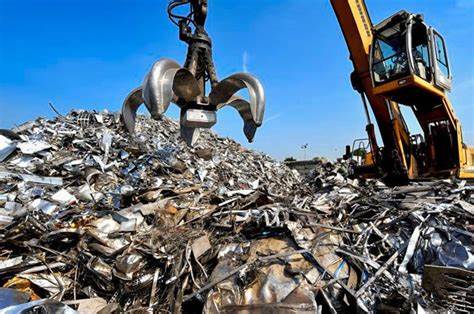Ferrous metal recycling in India has the potential to cut emissions by 59 percent, according to FICCI study, which is an impressive figure. According to the same analysis, recycling steel waste could reduce air and water pollution by 86 percent and 76 percent, respectively.
Energy and resources must be expended in substantial amounts for metal extraction from the Earth. Millions of people work in the mining and processing of metals. In addition, continued metal mining and processing may lead to greater pollution and habitat destruction. In India, there is little awareness about metal recycling, in contrast to plastic and paper. Nevertheless, recycling metals and using the industrial scrap for sale is just as crucial for the environment as recycling plastic, paper, and other materials that are frequently recycled. Here are some ways recycling metal can benefit the environment:
Reduced demand for landfill sites
Landfills are a common way to manage trash but are also a substantial source of chemical and aesthetic pollution. India generates 62 million tonnes of waste annually, and its waste production is increasing at a 4% annual rate. According to studies, India will require a landfill the size of Bengaluru, or 88 square kilometres, to house all of its waste by the year 2030. The demand for landfills can be reduced by recycling scrap metals, which leads to healthier air, water, and land.
Beneficial to manufacturers
Metal recycling is helpful to many different industries and companies. After creating their goods, metal-using companies usually produce a sizable amount of scrap; therefore, recycling the metal scrap can assist boost the economy and help create new jobs. The National Institute of Health states that whilst disposing of 10,000 tonnes of waste in landfill results in the creation of six jobs, incinerating the waste results in one employment. By this calculation, there can be 36 employments when recycling the same garbage, though.
Reusing scrap metal reduces visual pollution
Over time, metal mining excavation sites frequently become depleted, and workers move to new areas in search of metals to mine. The majority of lands, therefore, have excavation holes. By providing an alternative to unprocessed ore, metal recycling reduces the environmental impact of mining. Recycling metal is essential to lowering the visual pollution associated with metal mining since mining activities disturb natural ecosystems and pollute the air, water, and soil nearby.
Reduce energy consumption
Energy is used extensively during the fabrication and production of metals for raw materials. Actually, the energy required to produce 20 cans from recycled metal is comparable to the energy required to produce one can from raw materials. Using recycled metal in place of natural resources can cut the energy costs for producing metals like copper and aluminium by more than 75%.
The Need to Recycle
Although there are several benefits to recycling, the main one is to find substitutes for natural resources. It lessens the need to work with brand-new metal, thus protecting the iron ore and coal that are required to make metal. Coal was responsible for 43% of the world's greenhouse gas emissions as several studies showed. So it is important to consider alternatives to fuels like coal, whose combustion is a substantial contributor to global warming. Also well known is the fact that the vast majority of recyclable materials come from commercial or industrial sources. These materials normally go through recycling infrastructure without many issues and are recycled into clean, high-quality, commodity-grade goods that are used all over the world as sustainable alternatives to virgin resources.





